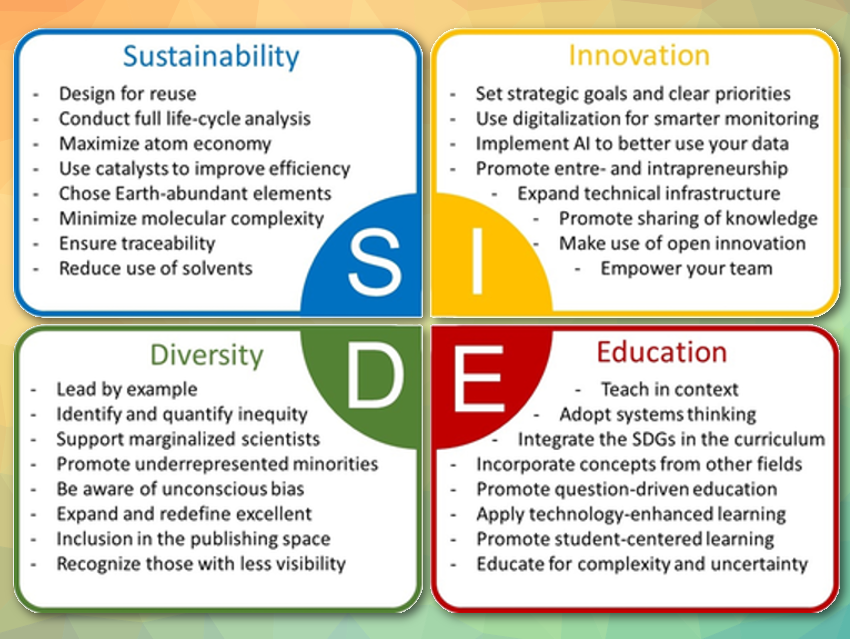In an editorial, Javier García Martínez, Universidad de Alicante, Spain, has addressed actions that chemistry should take in research, industry, and education to adapt to the challenges and seize untapped opportunities in this new decade.
According to the latest edition of the Circularity Gap Report, only about 31 % of raw materials are converted into useful products. At the rate we are now extracting, emitting, and disposing, we cannot continue to do so without endangering our climate, our planet, and our own health. If we want to have a viable industry and a healthy planet, the circular economy cannot be just a wish, but must be the main goal of chemistry. To achieve this goal, chemistry must evolve from being a science and industry of transformation (linear) to a science and industry of reuse (circular), García Martínez said. He sees the biggest challenge for chemistry in the coming years in decoupling economic growth from environmental impact.
The need to adapt to an increasingly fast-changing situation was evident in the coronavirus pandemic when the chemical industry had to adapt its production to a demand that changed in a matter of weeks. Innovation, not only in products but also in new business models and management, is inevitable.
The most effective way to adapt chemistry research and industry to the new normal is to redesign chemistry education. Not much has changed here since the second industrial revolution, so if we do not change, we are producing excellent chemists for a world that no longer exists. Most chemical plants are fully digitized and many processes in industry are run by machines, yet most chemists do not know how to code an algorithm or program a robot. These new skills and knowledge are becoming increasingly important.
The beginning of this decade is also marked by a strong call for more diversity and inclusion in all facets of life. Despite all efforts, discrimination is still a reality, and chemistry is not immune to it.
Moreover, 2030 is the deadline we have set ourselves for achieving the United Nations Sustainable Development Goals (SDGs). In this context, delays are costly, international collaboration is key, and scientists must be engaged and understand the needs of citizens. Chemistry has much to contribute to the 2030 Agenda, but “business as usual” will not get us there. Sustainability, innovation, diversity, and education are the four pillars that should guide our efforts in the next decade, and clear goals and milestones are needed.
Javier García Martínez ends his editorial with a quote from Kenneth G. Wilson, the 1982 Nobel Laureate in physics: “The most complex problems in science can only be resolved through the full cooperation of the entire international scientific community.” García Martínez thinks that we will have many opportunities to put Kenneth’s advice into practice in this decade.
- Chemistry 2030: A Roadmap for a New Decade,
Javier Garcia‐Martinez,
Angew. Chem. Int. Ed. 2021.
https://doi.org/10.1002/anie.202014779
Also of Interest
- Are We Racing To Get Back To “Normal” As Soon As Possible?,
Peter G. Mahaffy,
ChemistryViews.org 2020.
https://doi.org/10.1002/chemv.202000079
Making chemistry education more human-centered, relevant, and aligned with the guidelines of systems thinking




